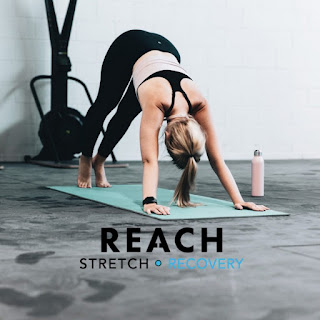Finding Relief from Muscle Pain
Muscle pain or myalgia is a common problem affecting people of all ages. It can arise from day-to-day activities, intense exercise, overuse injuries or medical conditions. Muscle pain can range from mild soreness to severe debilitating cramps. Thankfully, there are many ways to get relief from muscle aches and restore normal function. In this blog, we will discuss the causes, symptoms and different treatment options for muscle pain relief.
What Causes Muscle Pain?
Some common causes of muscle pain include:
- Injury or overuse - Strains, sprains, muscle tears
- Rigorous exercise - Soreness after intense workouts
- Cramps - Due to mineral deficiency, dehydration, fatigue
- Spasms - Muscle knots or sudden contractions
- Tension - From stressful postures or daily activities
- Medical conditions - Fibromyalgia, myositis, lupus
- Medication side effects - Statins, corticosteroids
- Poor circulation - Reduced blood supply to muscles
Identifying the underlying cause can help guide appropriate treatment.
Signs and Symptoms
Typical symptoms that occur with muscle pain:
- Aching, stiffness or tenderness in a muscle
- Difficulty moving the affected muscle
- Muscle spasms, cramps or contractions
- Swelling, redness or bruising
- Shooting or stabbing pain
- Loss of strength and function
- Generalized body fatigue
The intensity, location and duration of symptoms can vary based on the cause. Seeking timely medical care is recommended especially if pain is sudden, severe or accompanied by other warning signs.
Treatment Options for Muscle Pain Relief
Rest
Giving the affected muscle adequate rest allows for natural healing. Avoid strenuous activities that aggravate pain. Gentle stretches can help relieve tension when resting painful muscles.
Cold/Heat Therapy
Applying ice packs can help ease acute muscle pain and swelling. Use ice for 15 mins every 3-4 hours during the initial injury. Switching to a heating pad thereafter promotes blood flow which aids healing.
Over-the-counter Medication
Anti-inflammatory pills like ibuprofen help alleviate inflammation and discomfort associated with muscle pain. Acetaminophen and aspirin can also be used for general pain relief.
Massage
Massage therapy helps relax tense muscles and improve circulation. Deep tissue massage techniques can release chronic muscle knots and tightness. Massage should be avoided in case of fever, fractures, bleeding disorders and post-surgery.
Stretching
Gentle stretching within pain limits can help maintain muscle flexibility and function. Stretches should be held for 30 sec and avoided in case of severe or recent injuries.
Physical Therapy
Specific exercises, stretches, manual therapy and modalities like ultrasound prescribed by a physical therapist can help rehabilitate injured muscles. They may also use taping techniques to support muscles.
Lifestyle Measures
Good sleep, hydration and nutrition support muscle recovery. Anti-inflammatory foods rich in omega-3 fatty acids like salmon and walnuts help reduce muscle soreness.
Bracing
Devices like knee or ankle braces provide compression and support joint stability allowing muscles to rest and heal.
Topical Analgesics
Over-the-counter creams and ointments containing menthol, capsaicin or NSAIDs can be applied on the skin for localized muscle pain relief.
Injections
Corticosteroid injections given into trigger points can relieve chronic muscle pain. Botox injections are also sometimes used for muscle spasms.
Surgery
In severe cases of chronic pain originating from soft tissue injuries, surgery may be needed to remove scar tissue or release compressed nerves.
When to See a Doctor
Consult a physician if muscle pain:
- Worsens or persists for over 1-2 weeks
- Causes difficulty walking or performing daily activities
- Occurs with numbness, tingling or weakness
- Results from a high impact injury or accident
- Is accompanied by rash, fever or other concerning symptoms
Doctors can evaluate severe or unexplained muscle pain, provide a diagnosis and prescribe appropriate treatment. In some cases, imaging or blood tests may be required.
Conclusion
Muscle pain is very common but can significantly impact quality of life. A mix of therapeutic approaches focused on rest, physiotherapy, neck pain relief, lifestyle measures and sometimes medications helps most people recover. Seeking timely medical guidance can help identify any serious underlying causes and prevent complications. With proper care, muscle related aches and discomfort can typically be managed effectively.



Comments
Post a Comment